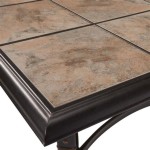Plastic Pavers For Patio: Essential Aspects to Consider
Plastic pavers have emerged as a popular and versatile option for patio flooring due to their durability, low maintenance, and aesthetic appeal. To ensure you make an informed decision when selecting plastic pavers for your patio, consider these essential aspects:
Materials and Durability
Plastic pavers are typically made from high-density polyethylene (HDPE) or recycled plastic. HDPE pavers offer superior strength, resistance to fading, and a longer lifespan compared to recycled plastic pavers. They can withstand heavy foot traffic and extreme weather conditions without cracking or splitting.
Design and Aesthetics
Plastic pavers come in a wide range of colors, textures, and patterns to complement any patio design. They can mimic the look of natural stone or wood while offering enhanced durability and slip resistance. Some pavers feature interlocking designs, allowing for easy installation and a seamless finish.
Installation and Maintenance
Installing plastic pavers is relatively simple compared to traditional materials like concrete. They can be laid directly on a compacted sub-base or on a sand or gravel bed. Plastic pavers require minimal maintenance, as they are resistant to stains, fading, and mold. Regular sweeping or power washing is sufficient to keep them looking their best.
Environmental Impact
Plastic pavers made from recycled materials contribute to reducing waste and environmental pollution. They are also more energy-efficient to produce than concrete or asphalt pavers. Additionally, plastic pavers are impermeable, preventing water penetration and reducing the risk of erosion or water damage.
Cost and Value
Plastic pavers are generally more affordable than natural stone or concrete pavers. However, the cost can vary depending on the material, design, and size of the pavers. Plastic pavers offer excellent value for their durability, low maintenance, and aesthetic appeal, making them a cost-effective choice for patios.
Additional Considerations
- Drainage: Select pavers with a perforated design or install them with a permeable sub-base to ensure proper drainage and prevent water accumulation.
- Slip Resistance: Look for pavers with textured surfaces or interlocking designs to enhance slip resistance, especially around pool areas.
- Foot Traffic: Consider the amount of traffic your patio will receive and select pavers that are designed to withstand the expected load.
- Warranty: Look for plastic pavers backed by a comprehensive warranty that covers materials, fading, and structural integrity.
By carefully considering these essential aspects, you can make an informed decision when selecting plastic pavers for your patio, ensuring both functionality and aesthetic appeal for years to come.

Emsco 16 In X Flat Rock Grey Plastic Resin Lightweight Duty Patio Paver 12 Pack 2162hd The Home Depot

Plastic Pavers A Complete Guide To Paving Systems Truegrid

Plastic Pavers A Complete Guide To Paving Systems Truegrid

Proflex 6 Ft Paver Edging In Black 1260 Hd The Home Depot

Paver Patios That Will Save You Time And Effort Family Handyman

Plastic Pavers A Complete Guide To Paving Systems Truegrid

Emsco 16 In X Flat Rock Grey Plastic Resin Lightweight Duty Patio Paver 12 Pack 2162hd The Home Depot

Emsco Group 16 In L X W 1 H Square Gray Plastic Stepping Stone The Pavers Stones Department At Com

Plastic Edge Restraint Vs Concrete Which Is Better Western Interlock

Plastic Pavers Grids 100x50cm For Shed Base Paving Patios








